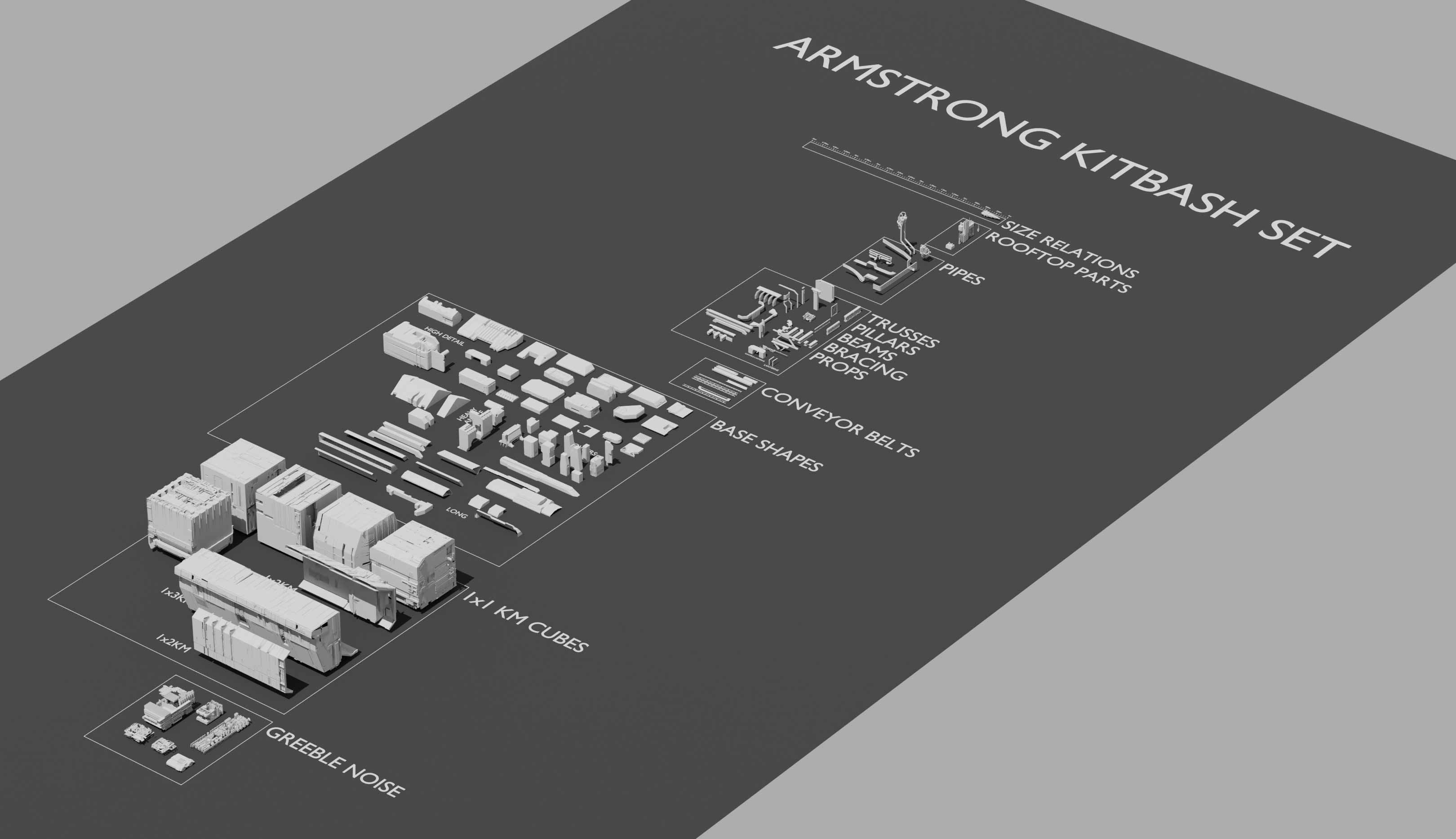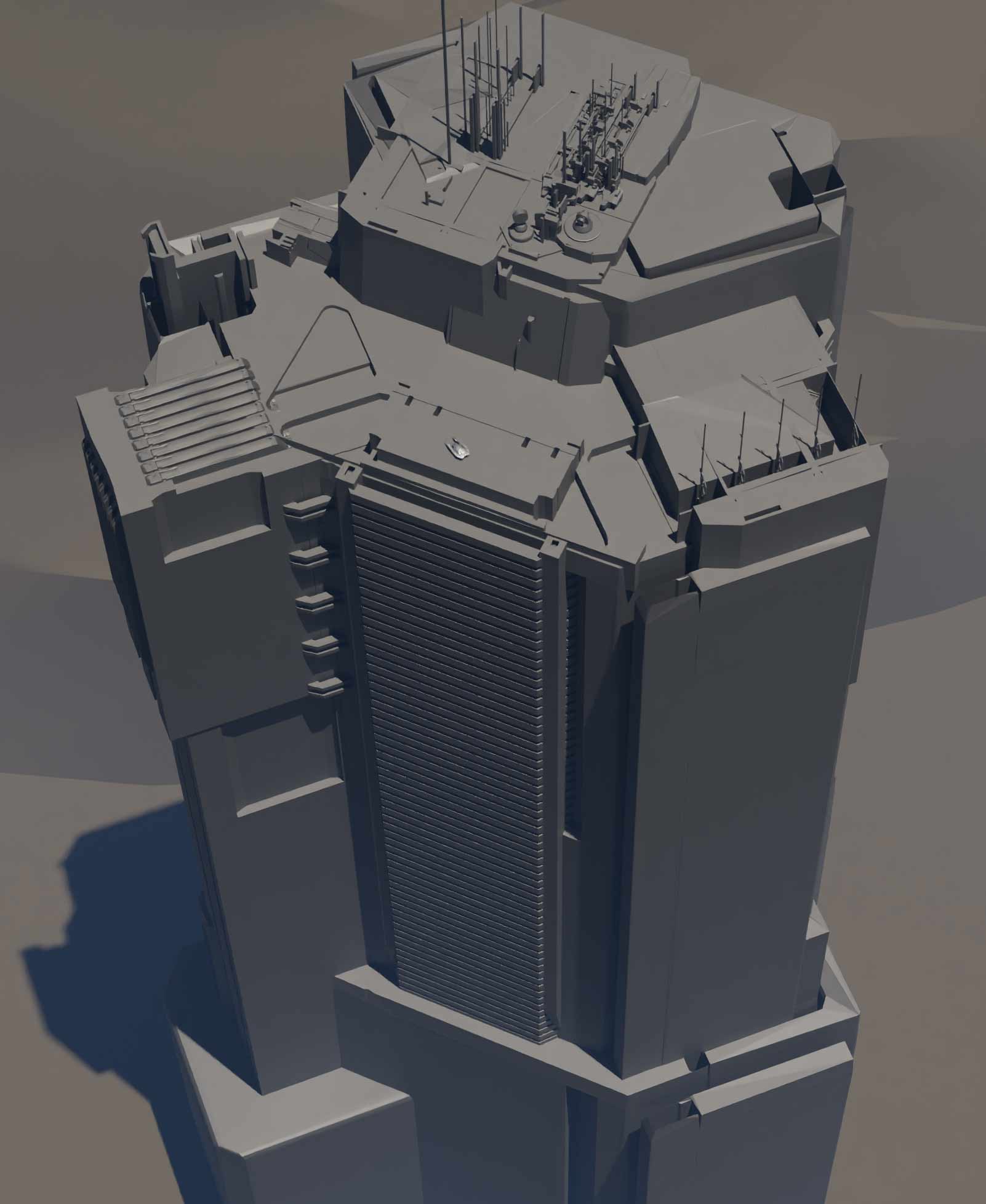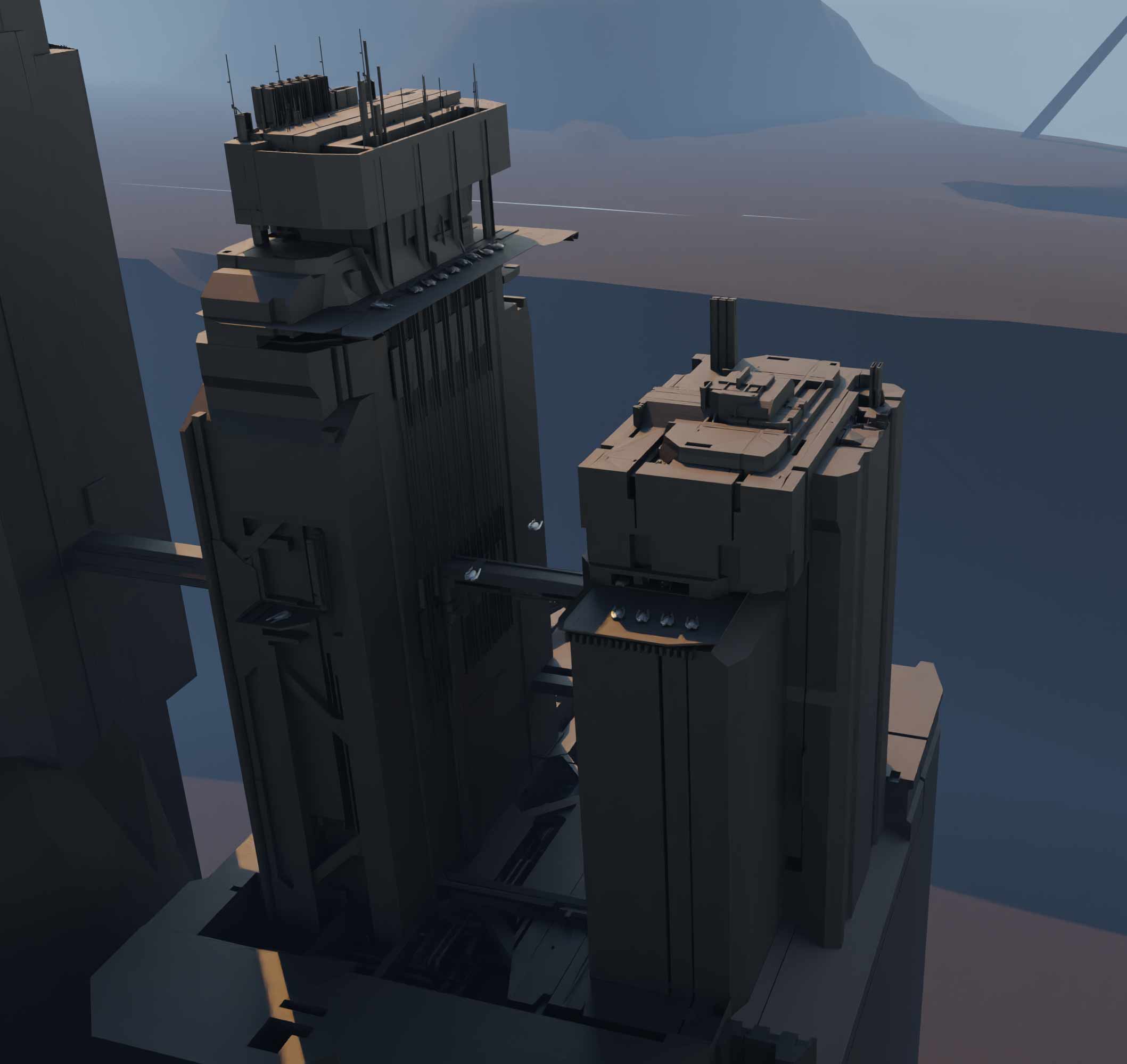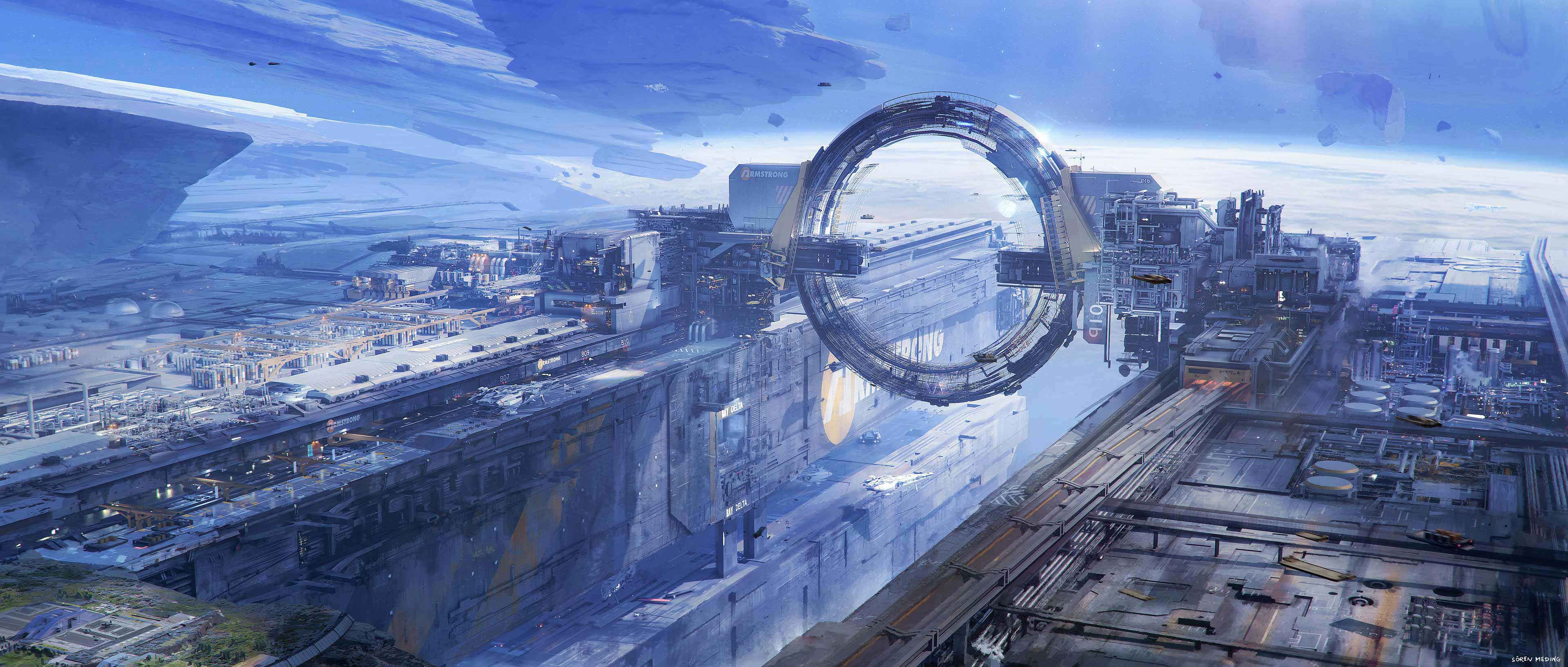

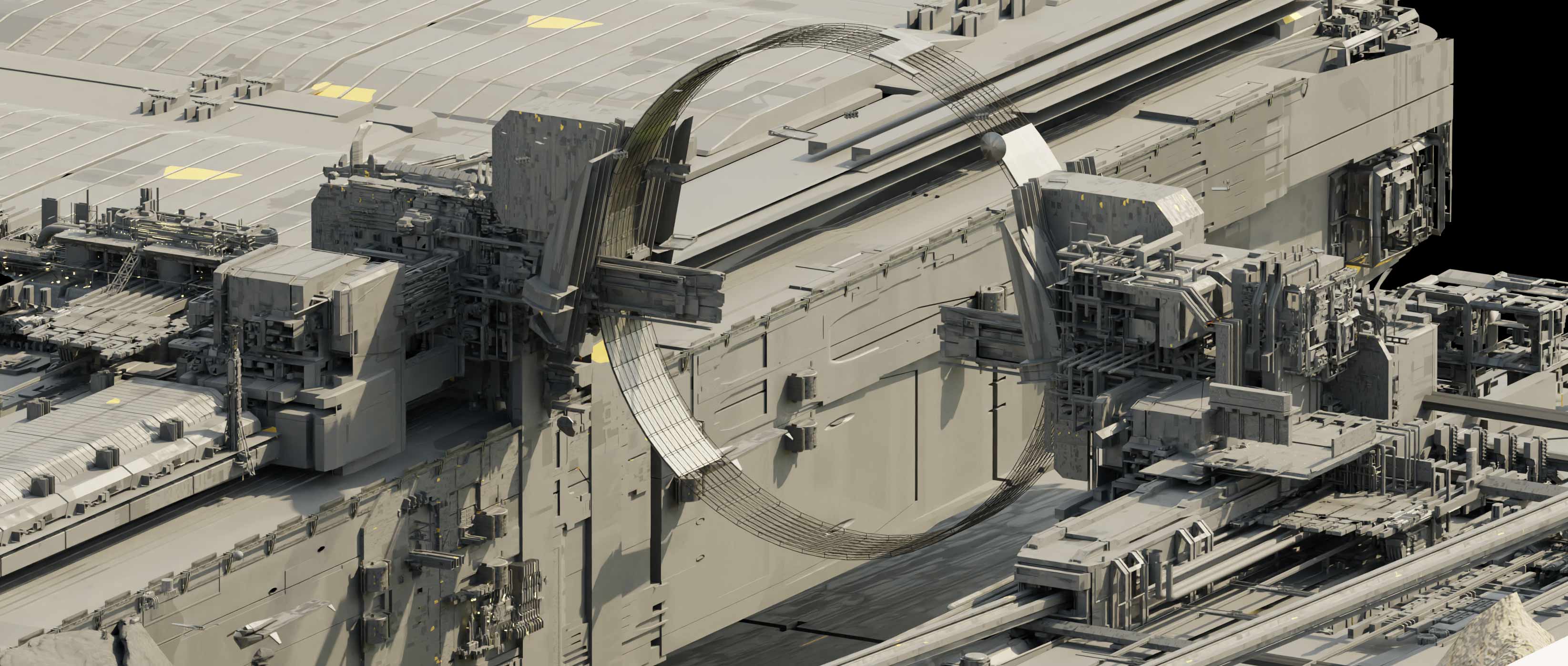
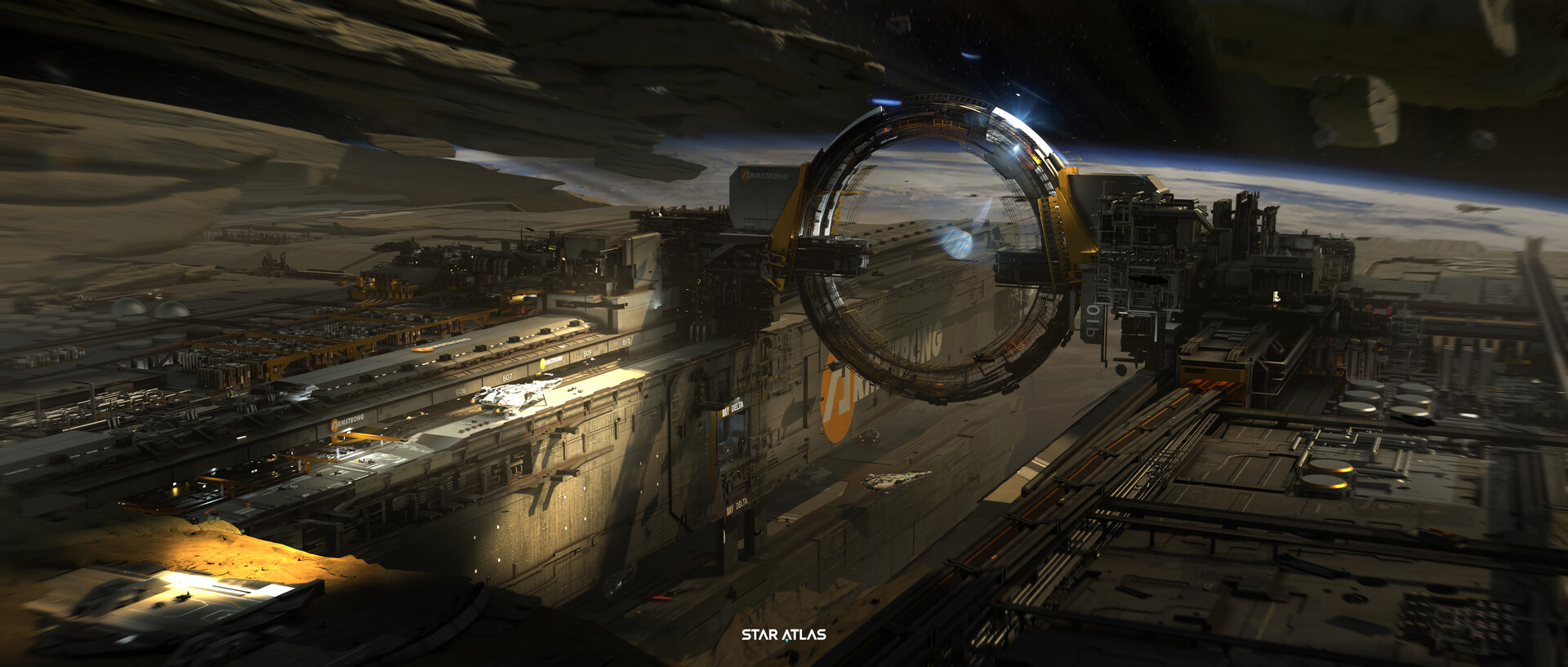
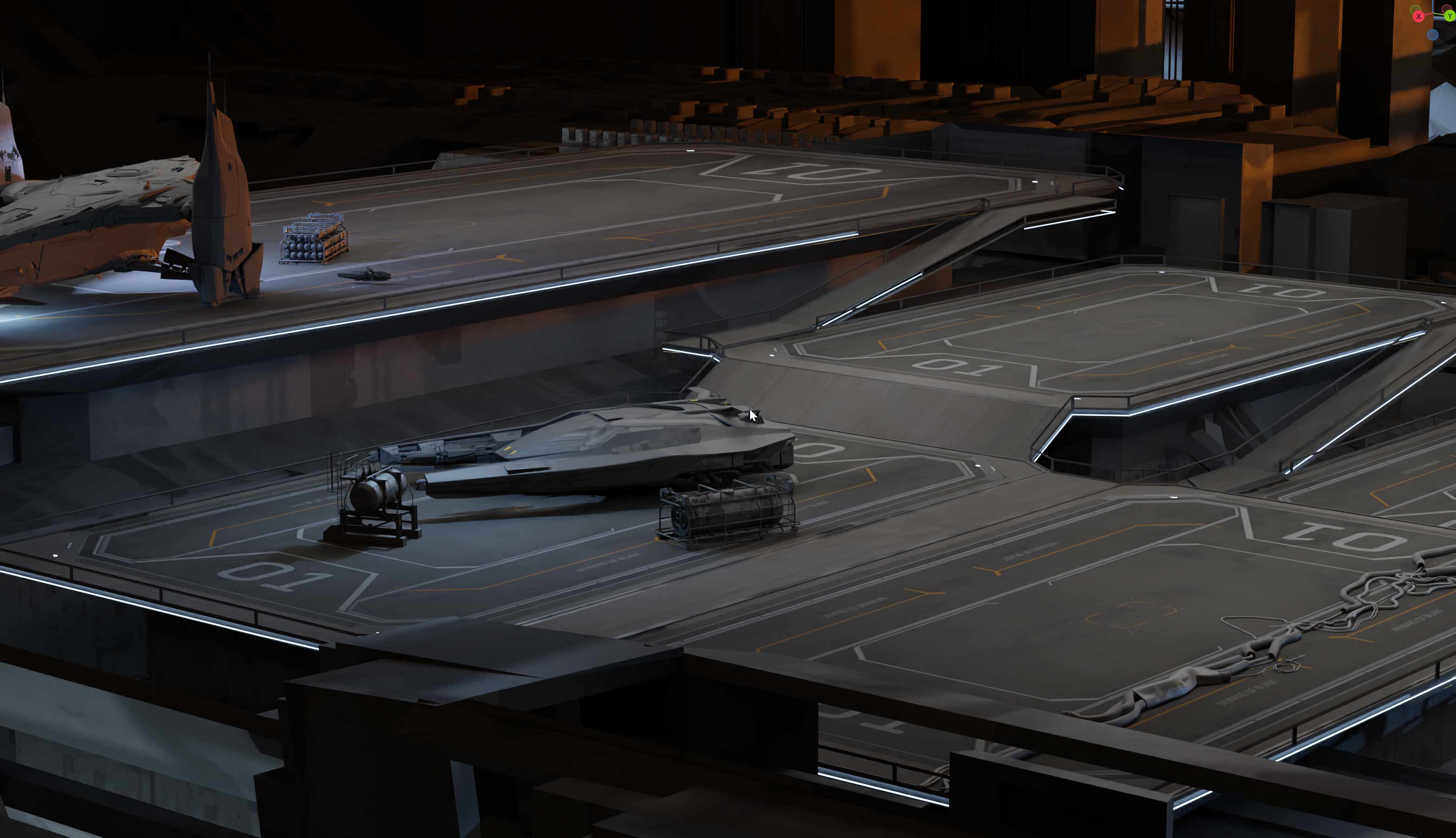
The gameplay foundation for all designs was the landing pad, a key location players can interact with. The core dimensions were defined fairly early on, but it still needed a logical and believable environment to fit into.
Function
The landing pads were done, now it was time to add logic. I’m a strong believer in environmental storytelling, so the facilities needed to make sense on a functional level.
I grew up in a port city with a major harbor, and maybe that influence is visible here.
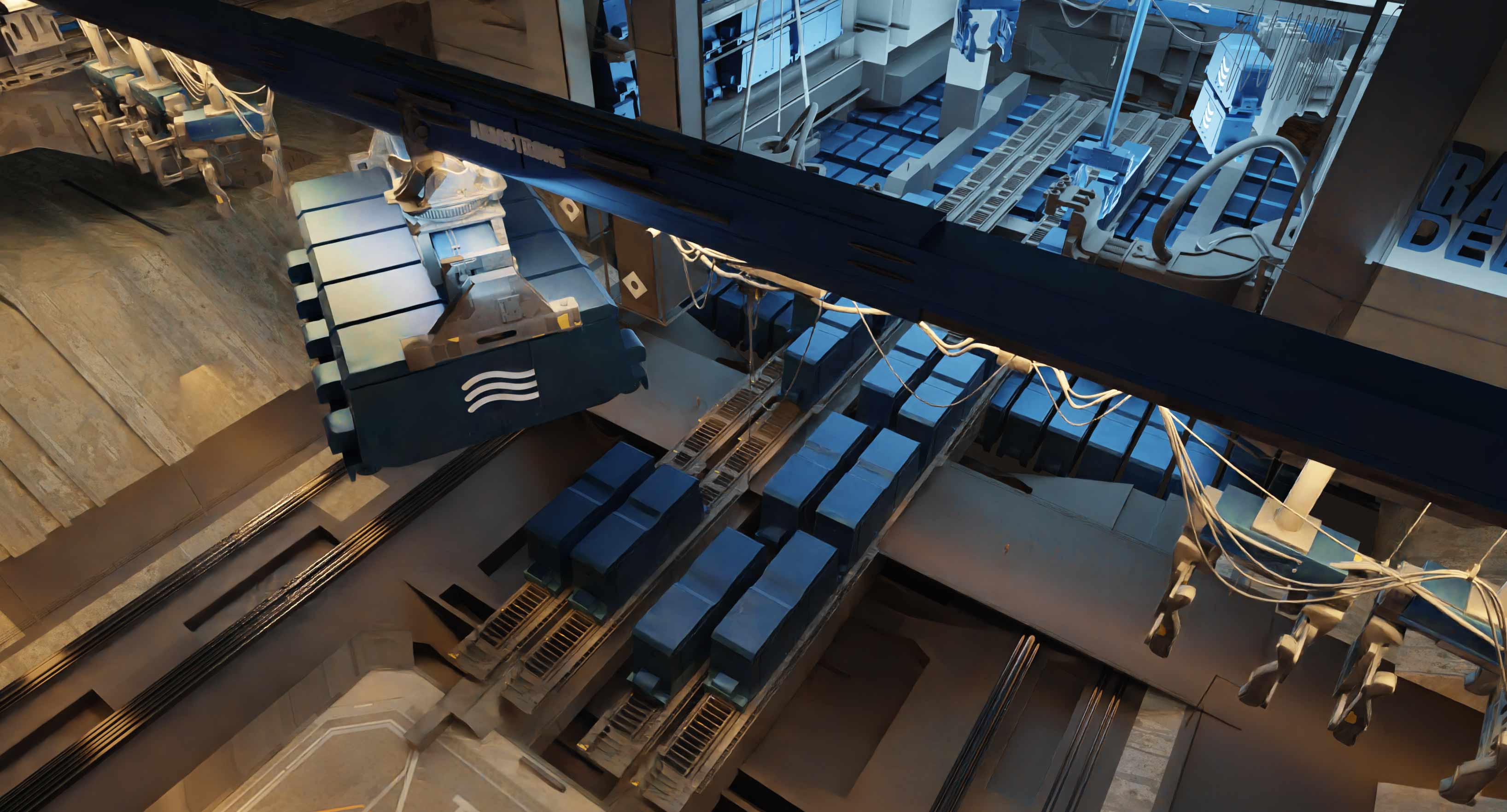
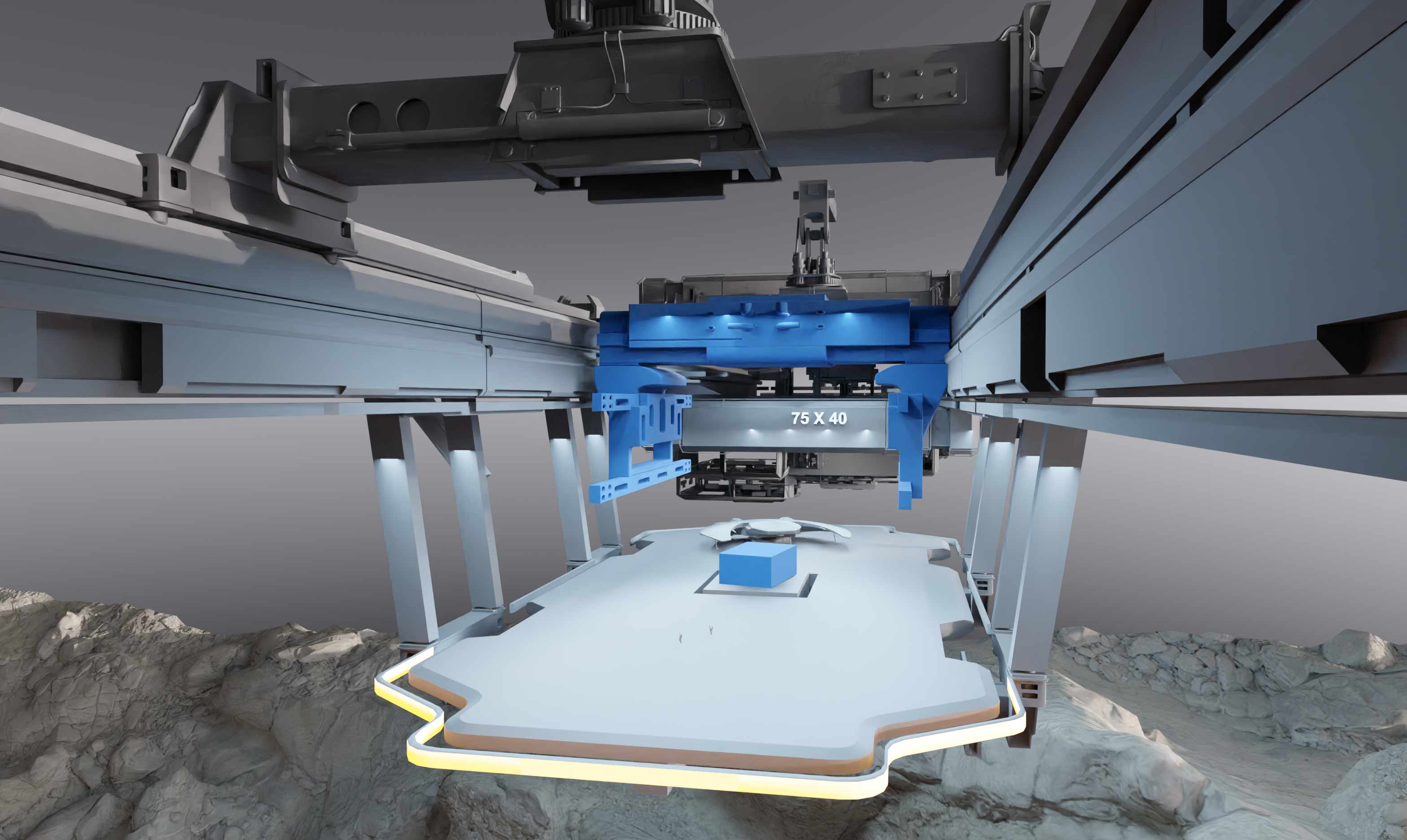
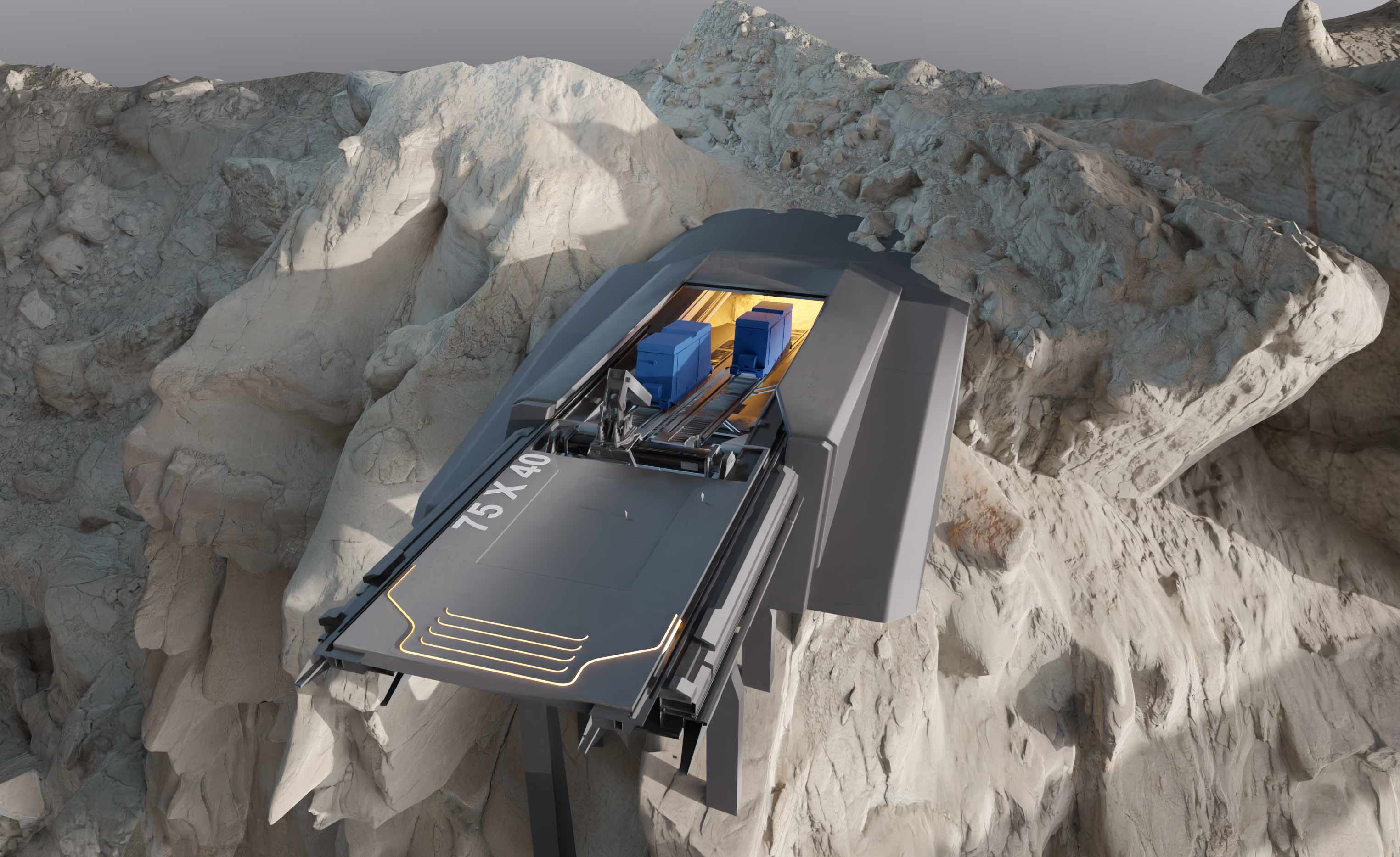
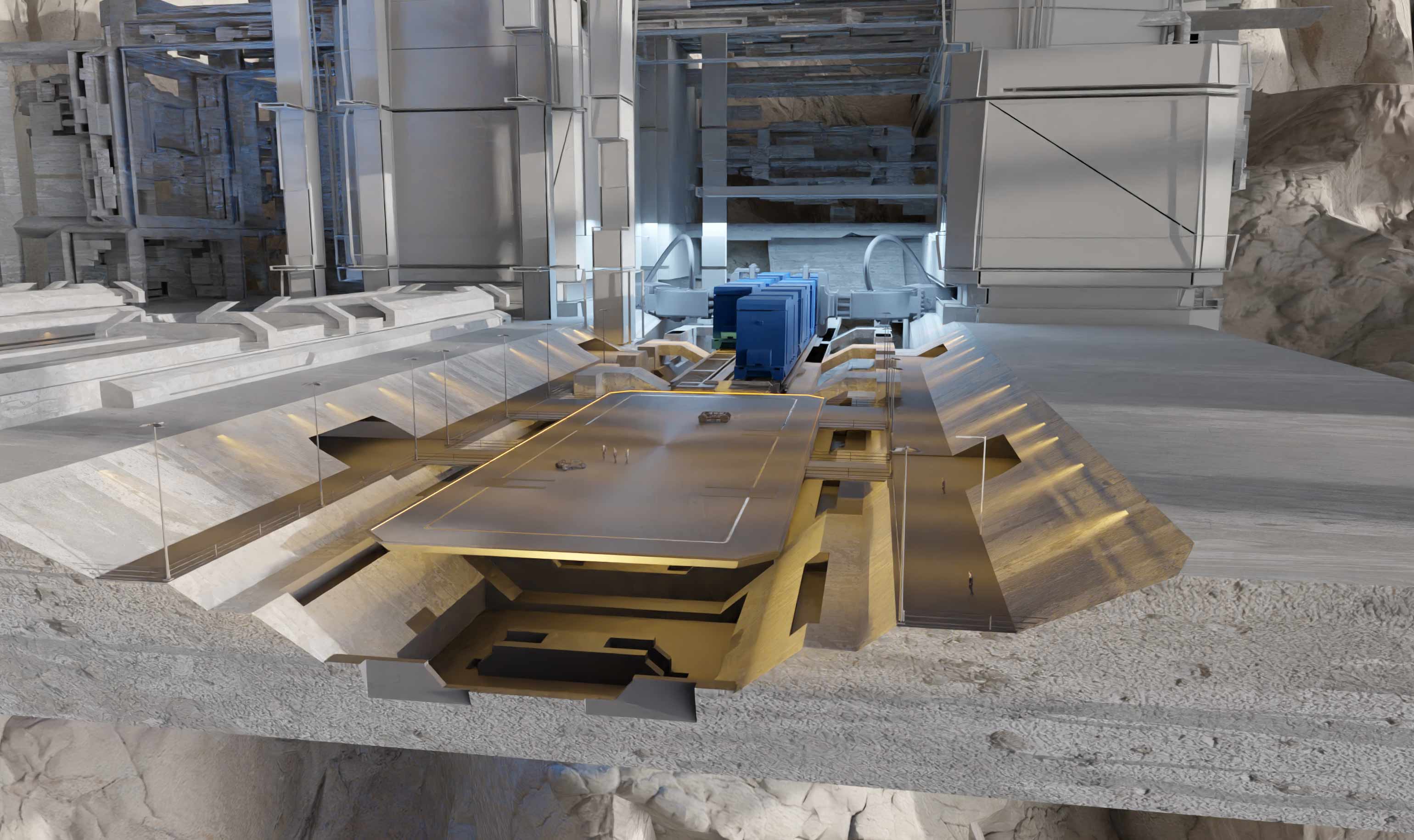
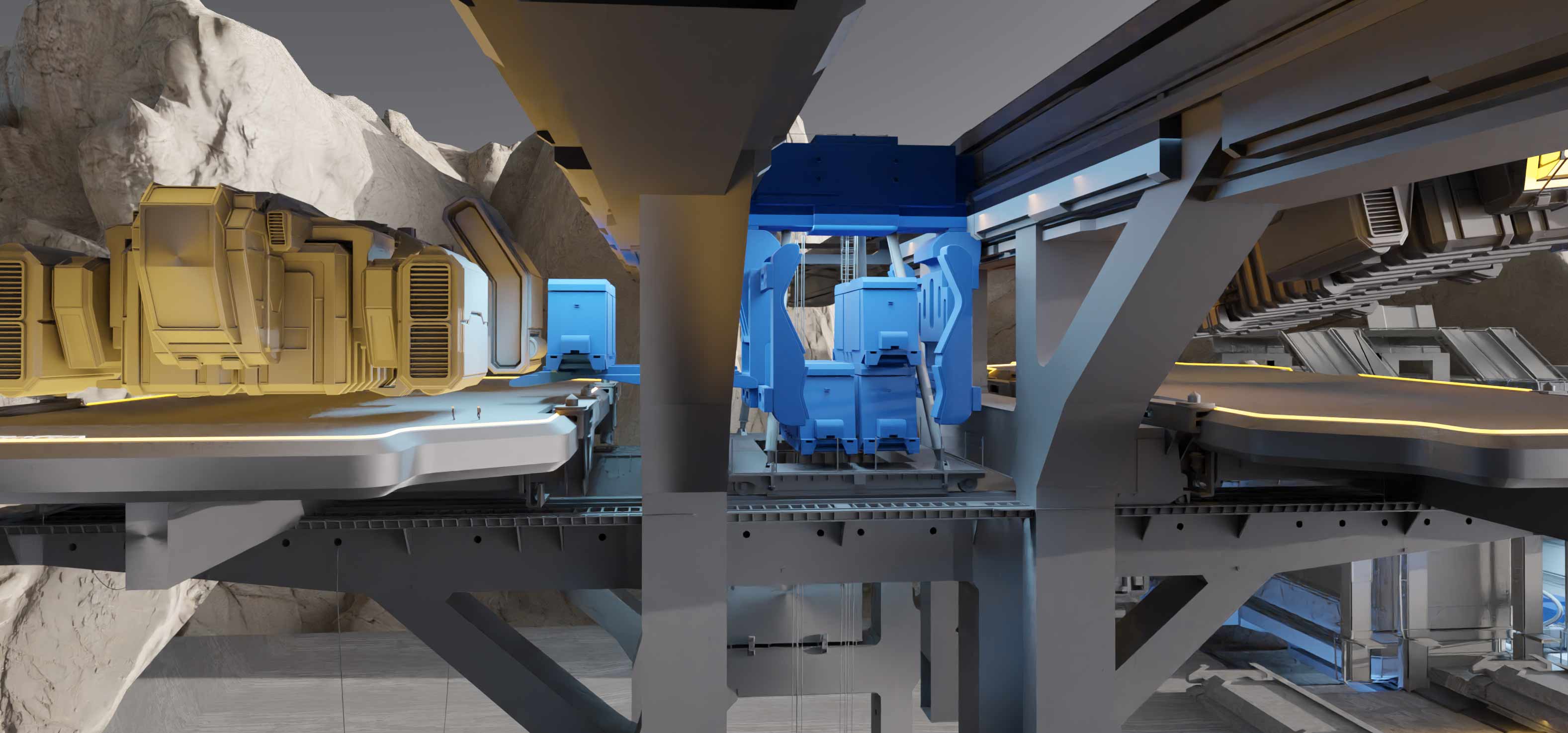
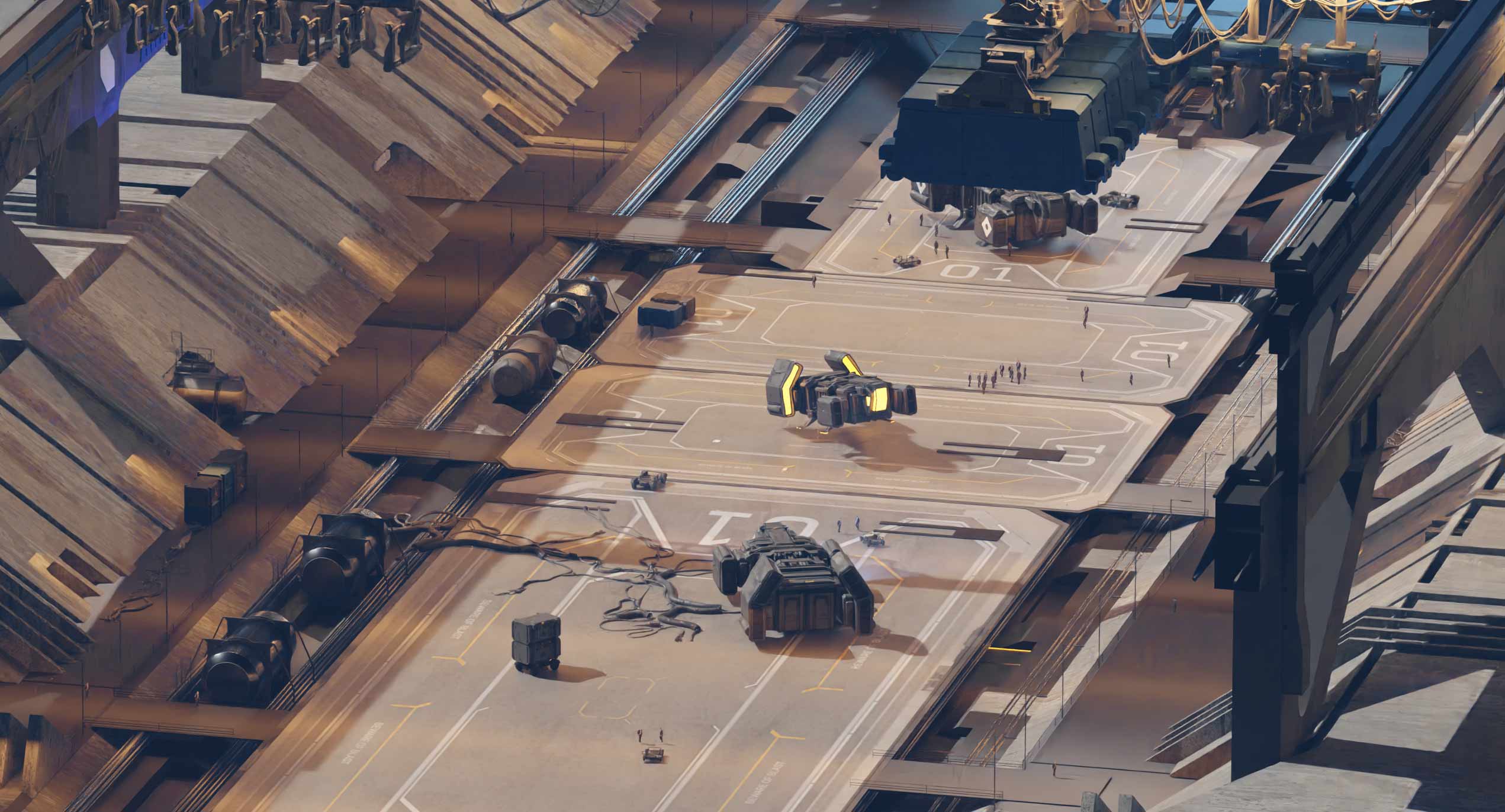
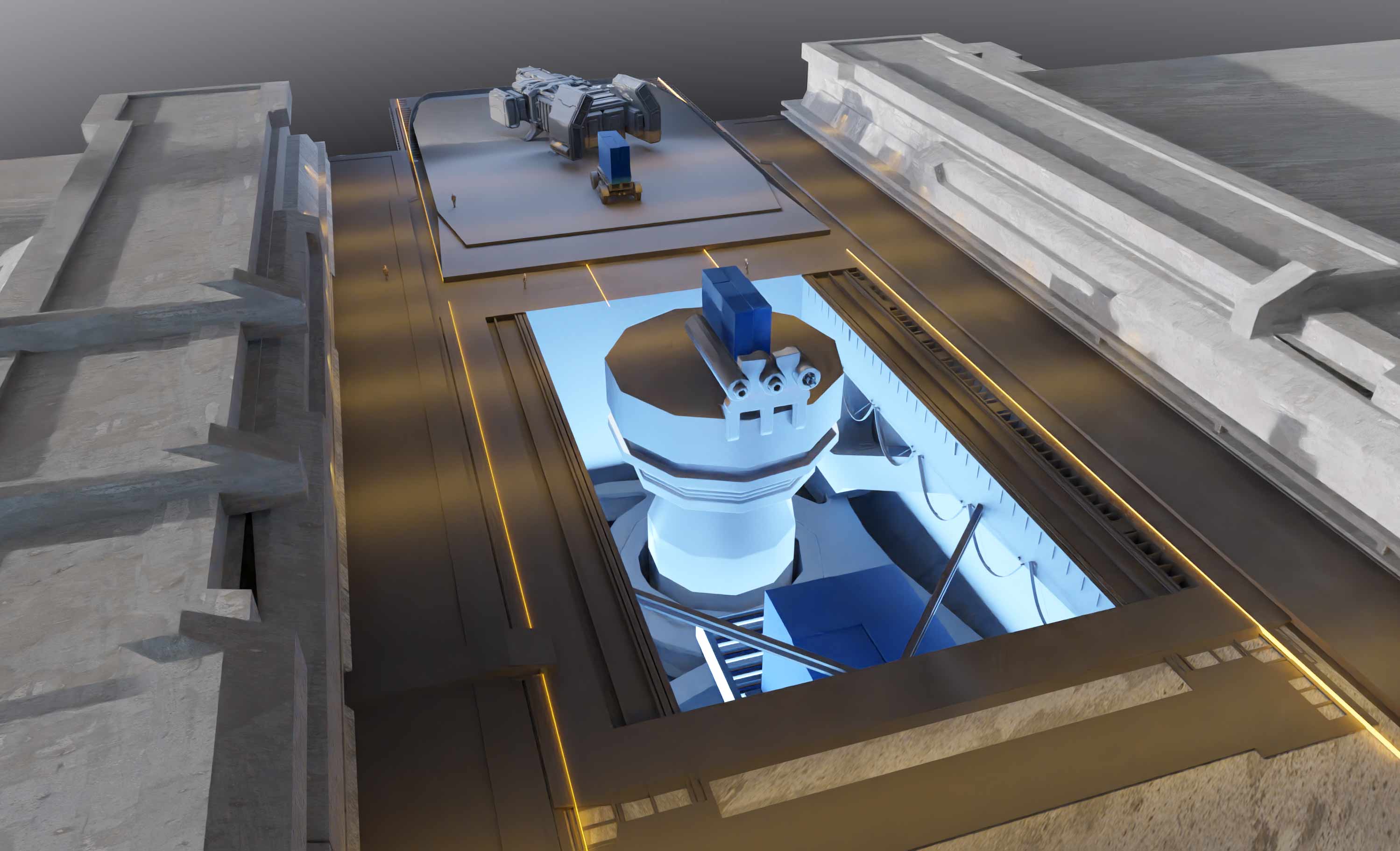
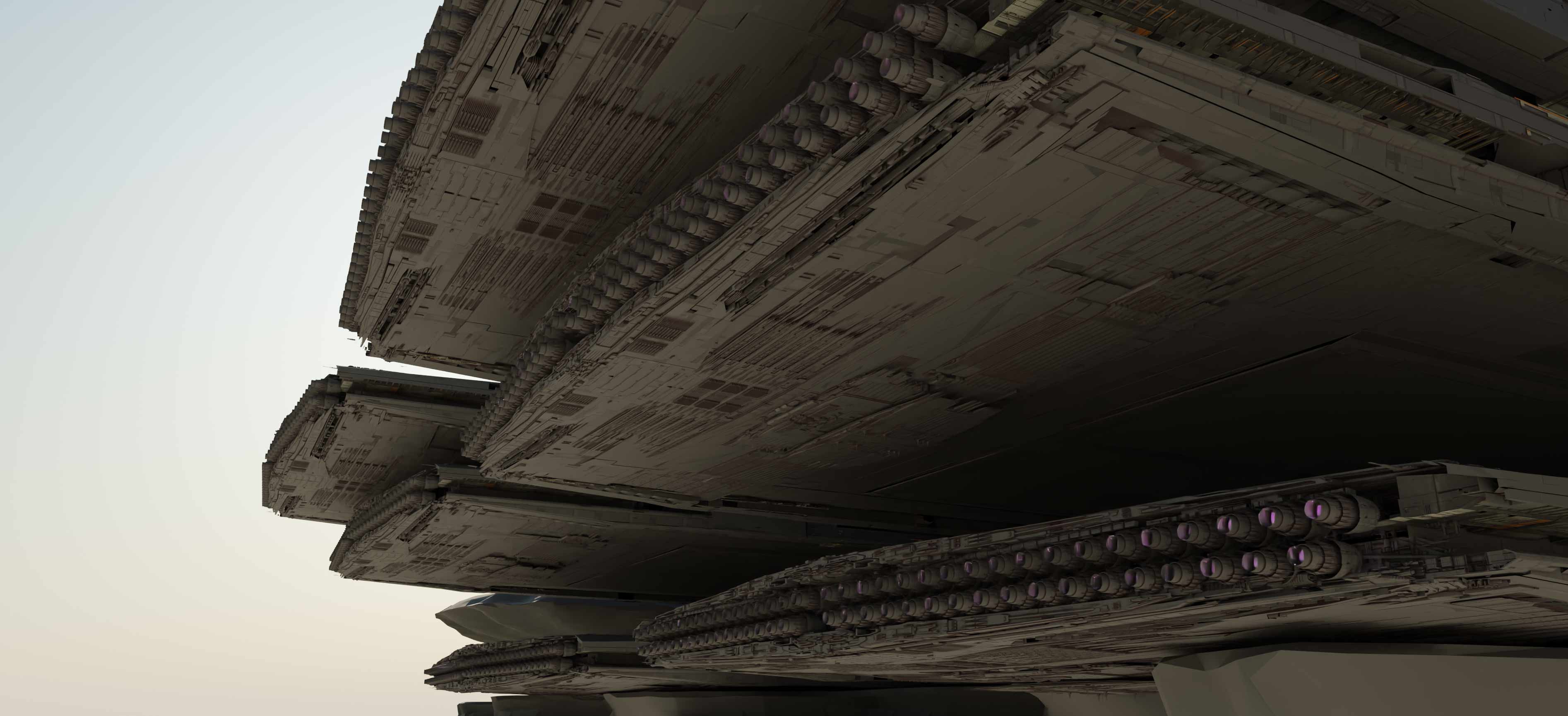
Solid base
The jump gate was meant to be mounted on the massive thrusters, and I mean truly massive, spanning dozens of kilometers. So when approaching the blockout from large to small scale, it made sense to start with the engines first before moving on to the gate-facility areas.
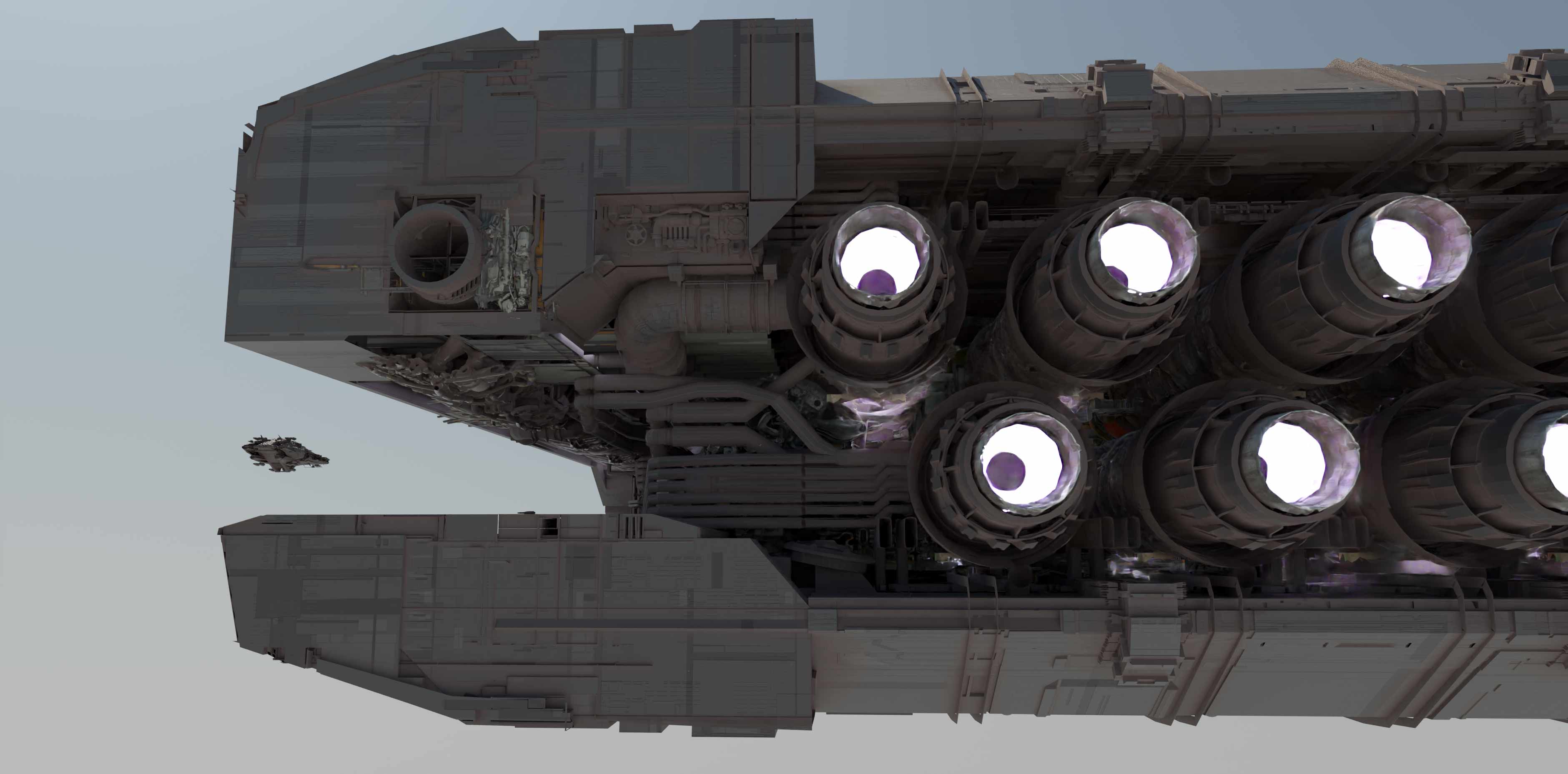
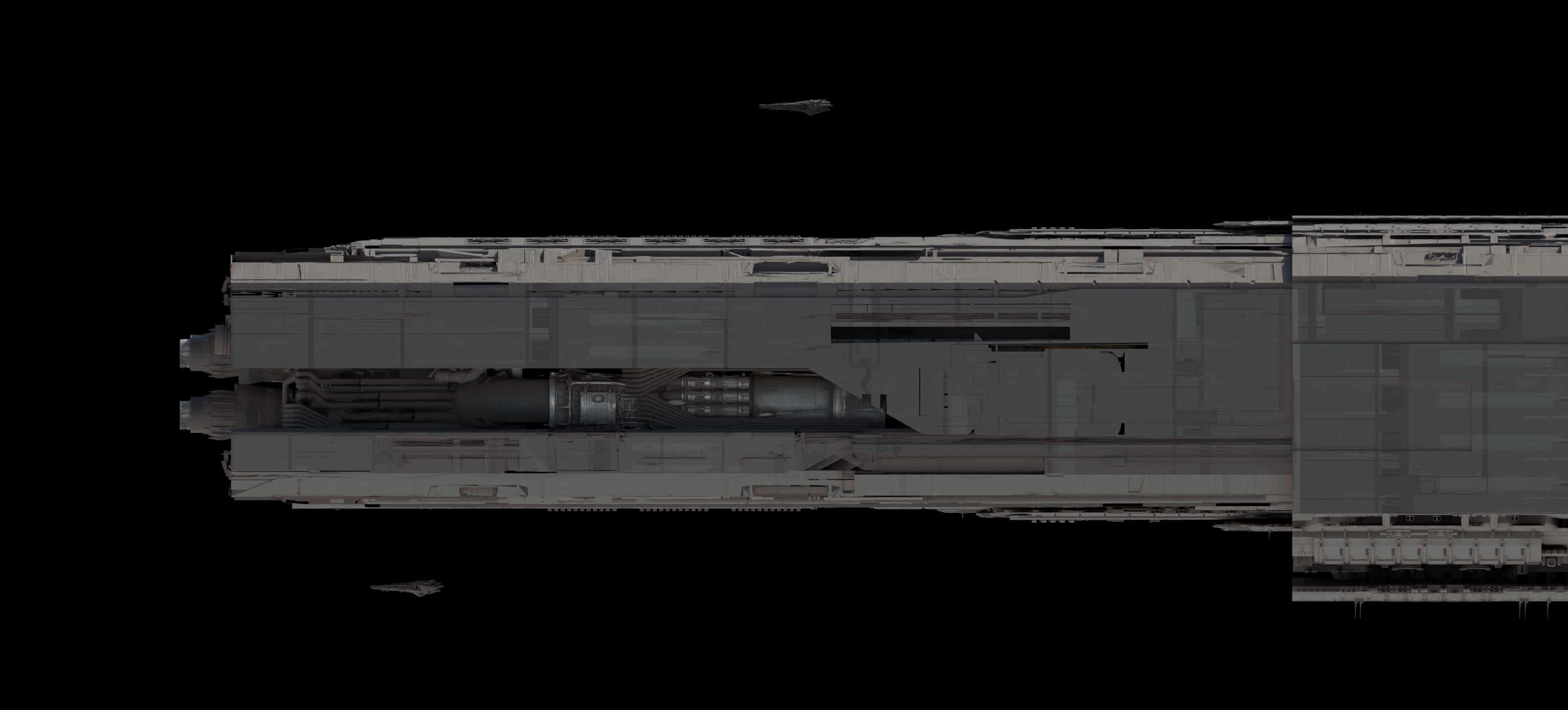
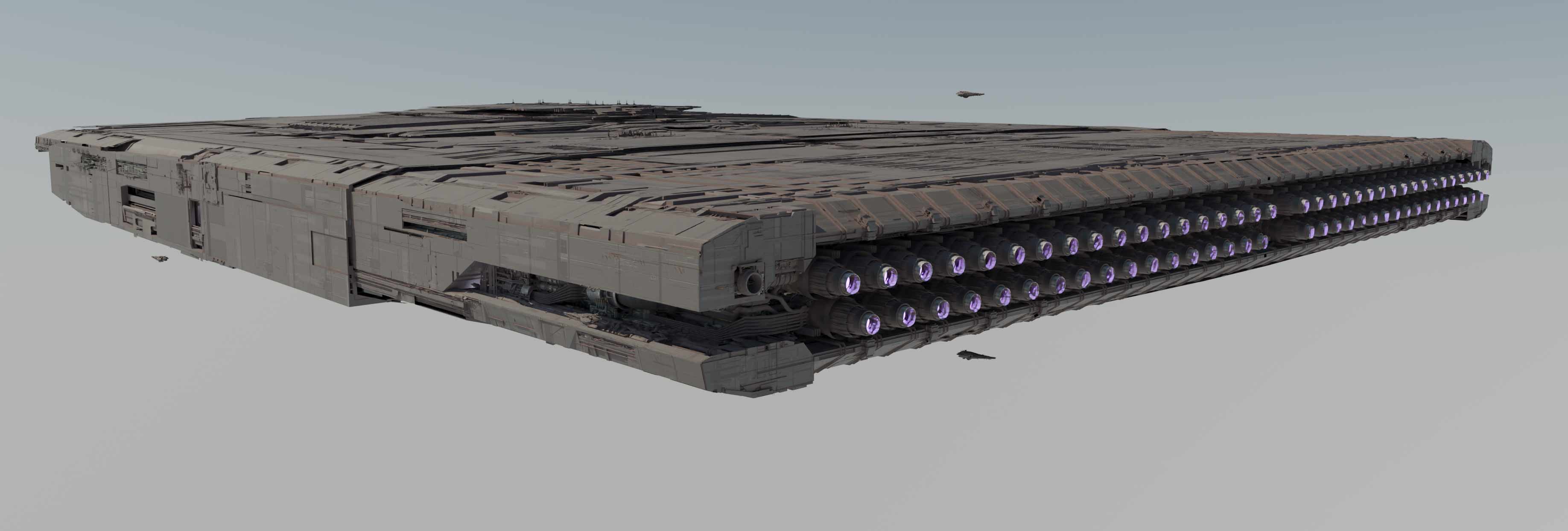
Port of the stars
From a gameplay perspective, players can interact with specific areas in the environment, primarily the landing pads. So we needed to create enough space for multiple players to engage, both on the engines and near the jump gate construction site. Once again, I invested time into making these areas feel functional and grounded in logic.
I introduced cranes of all shapes and purposes, along with massive container ships being loaded and unloaded. Think of modern-day shipping ports, just scaled up dramatically. The container system itself remains a solid, familiar structure, but in this sci-fi setting, the cranes, ships, and machinery are far more powerful, capable of handling enormous mass and operating in the harsh conditions of space.
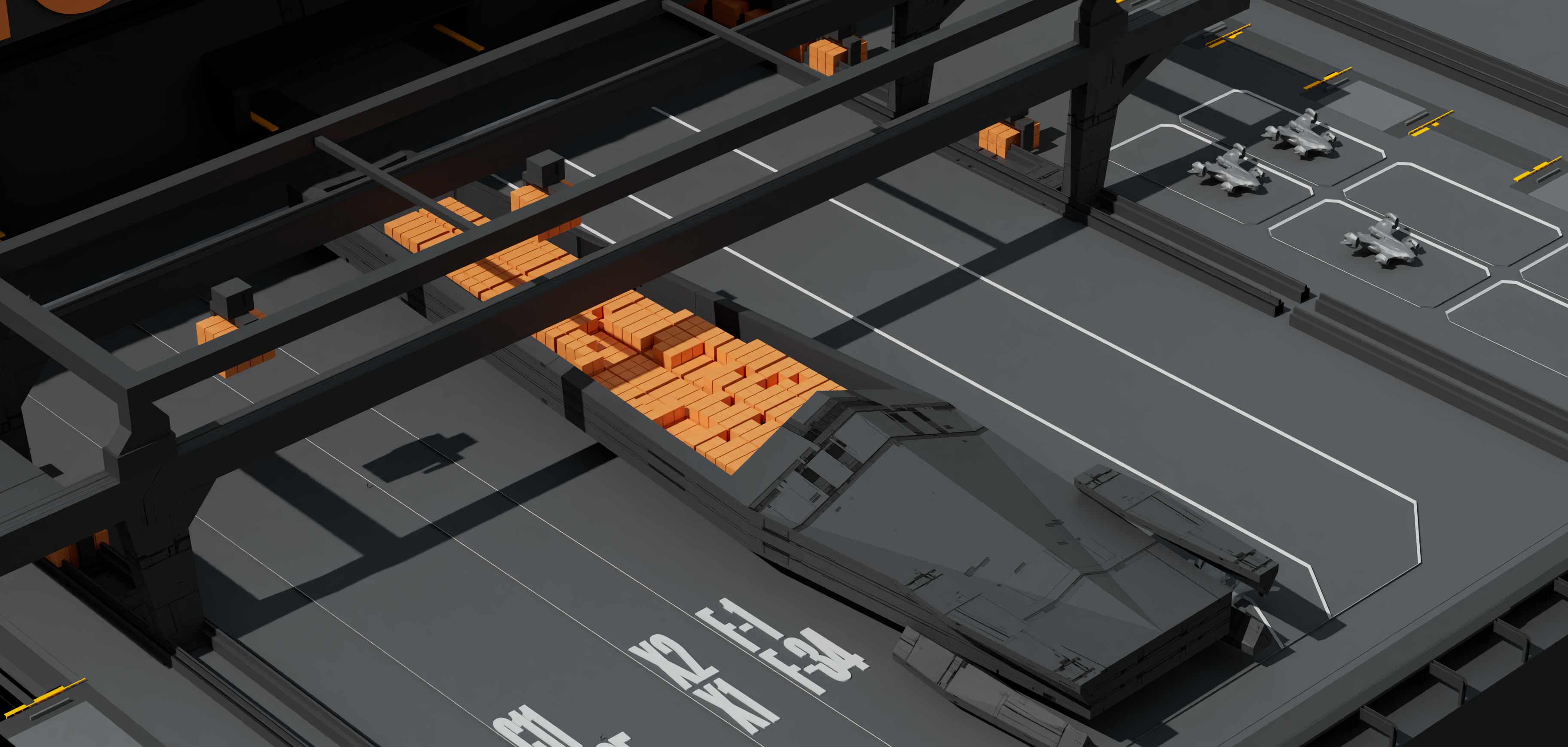
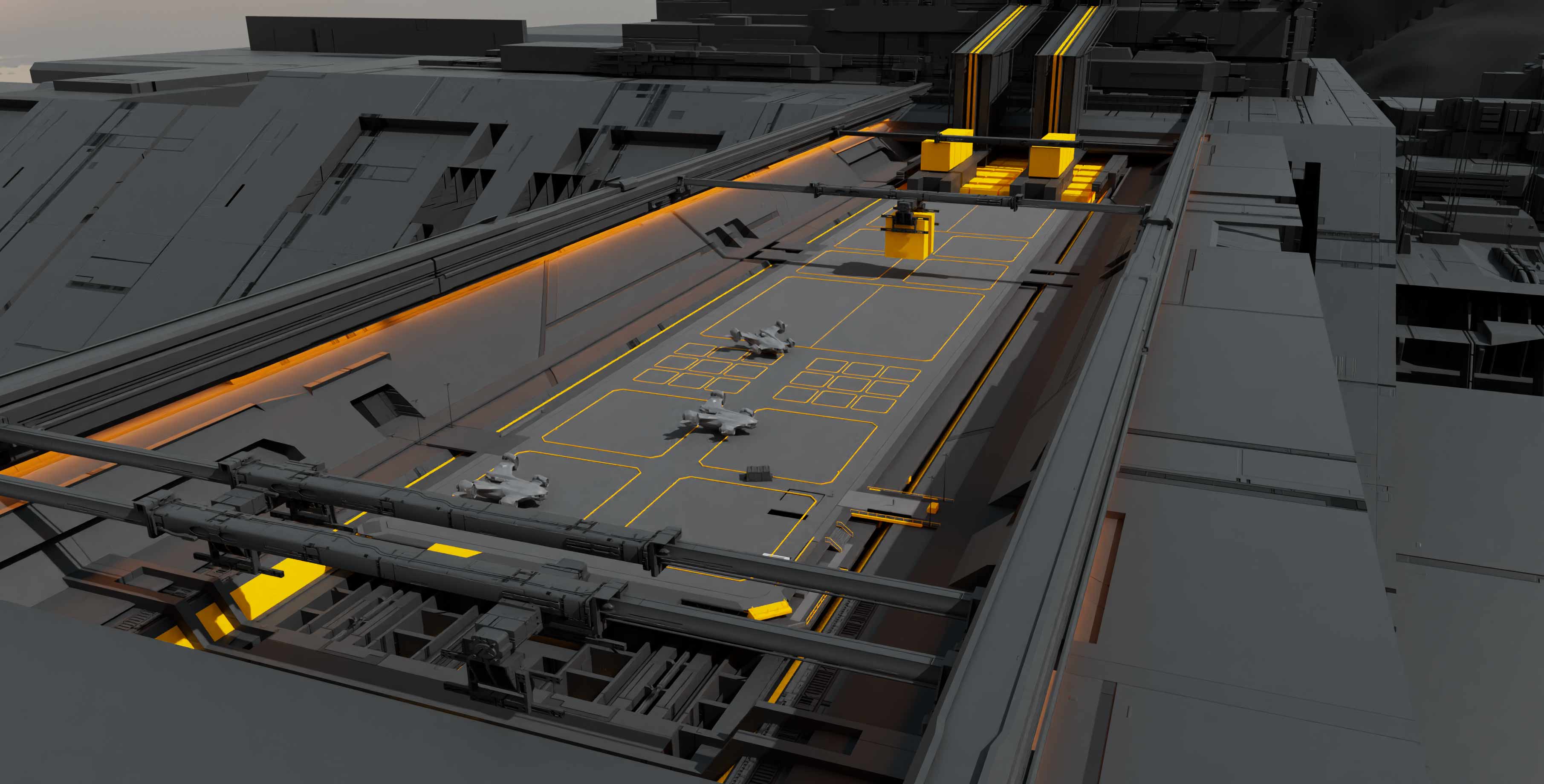
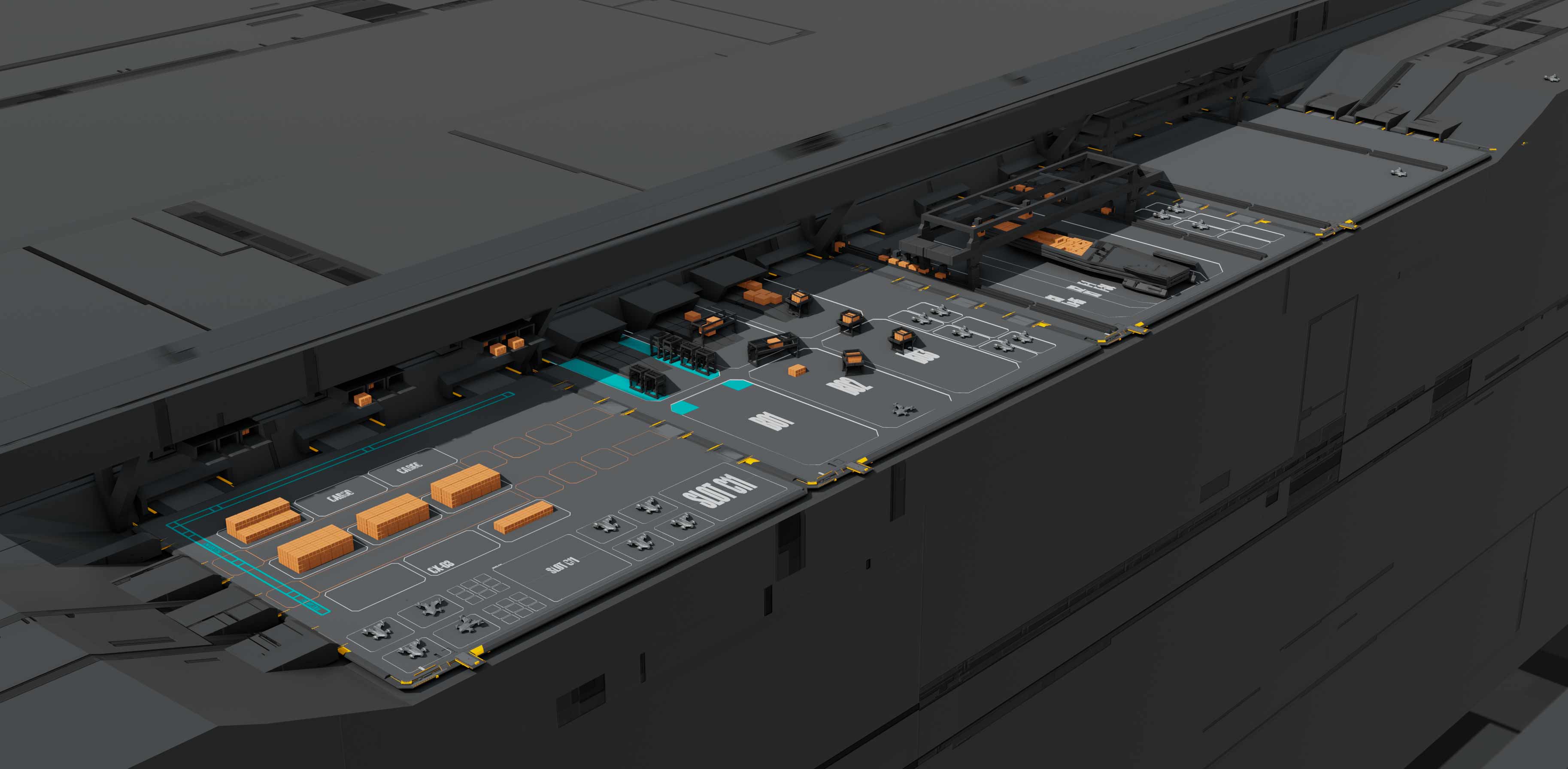
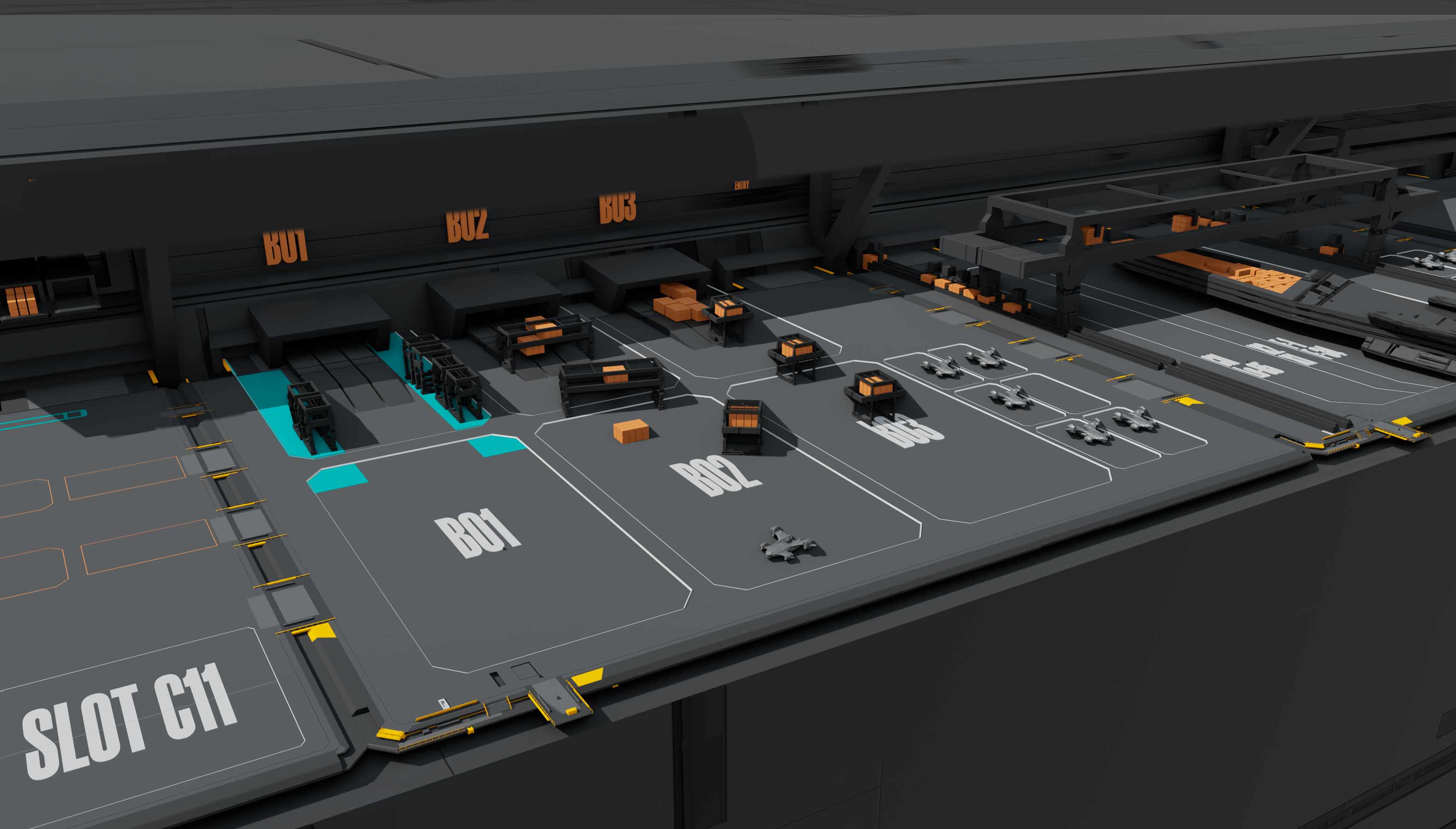
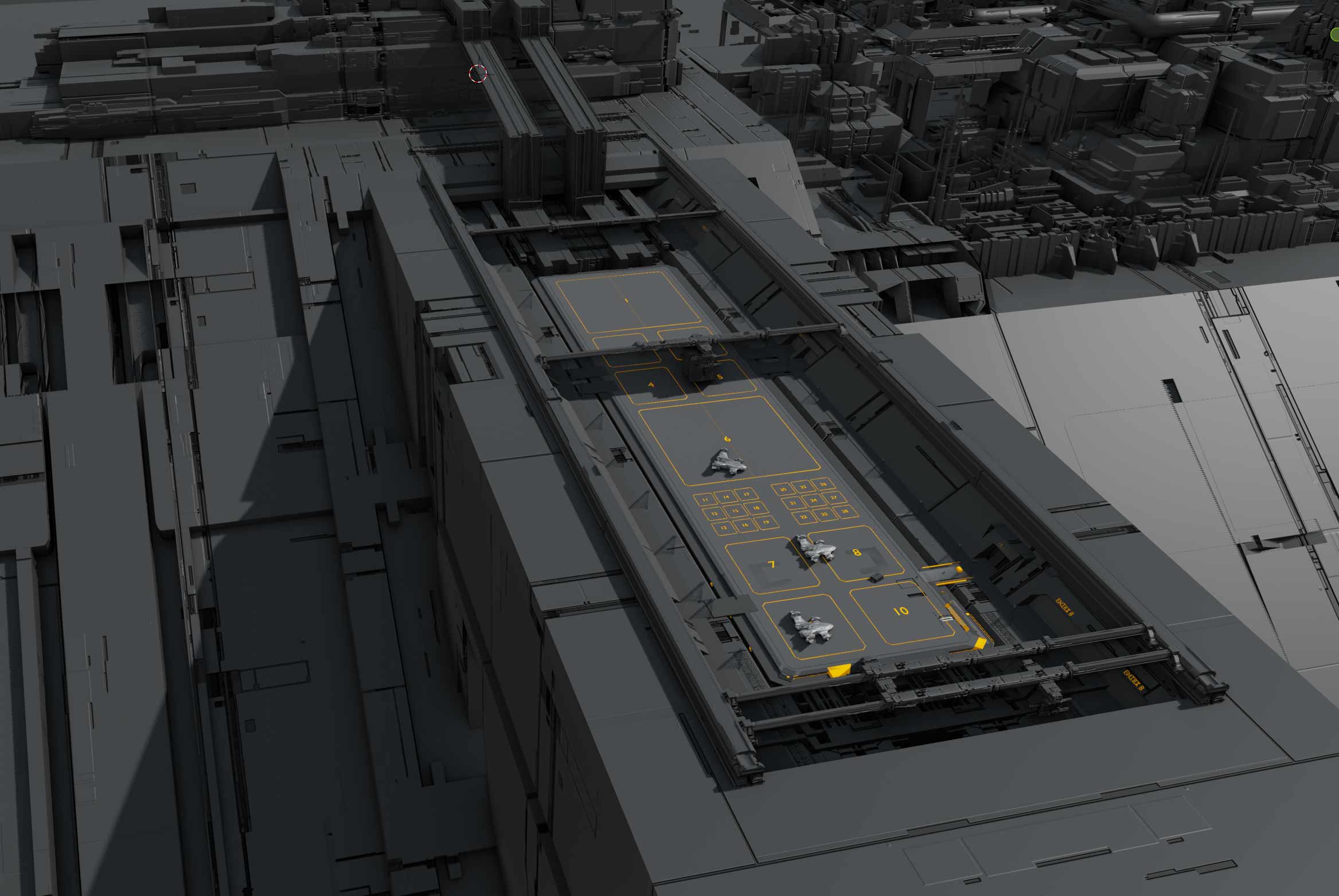
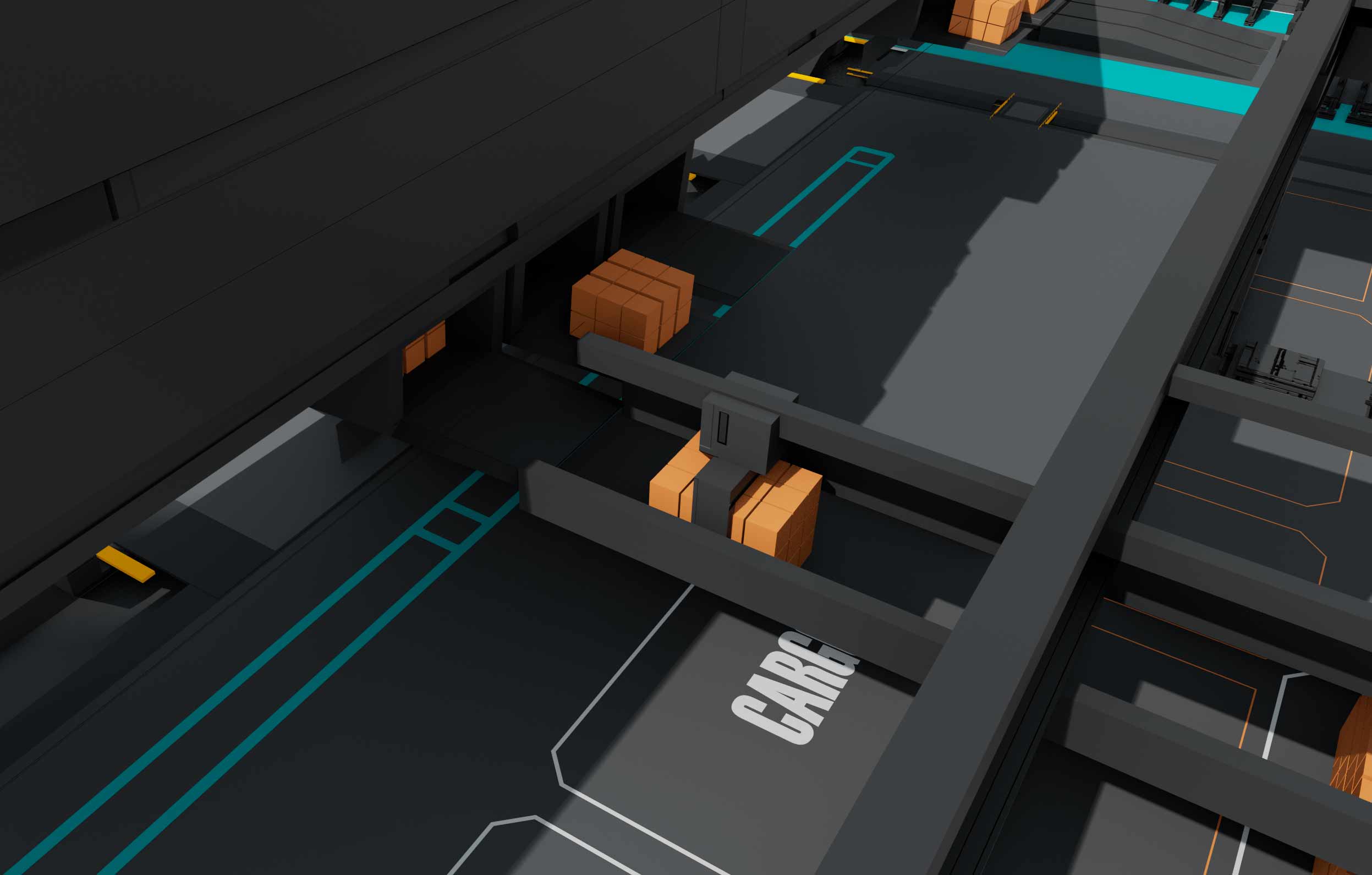
We needed another iteration of the landing pads, modular stations that could seamlessly adapt to different biomes and environments.

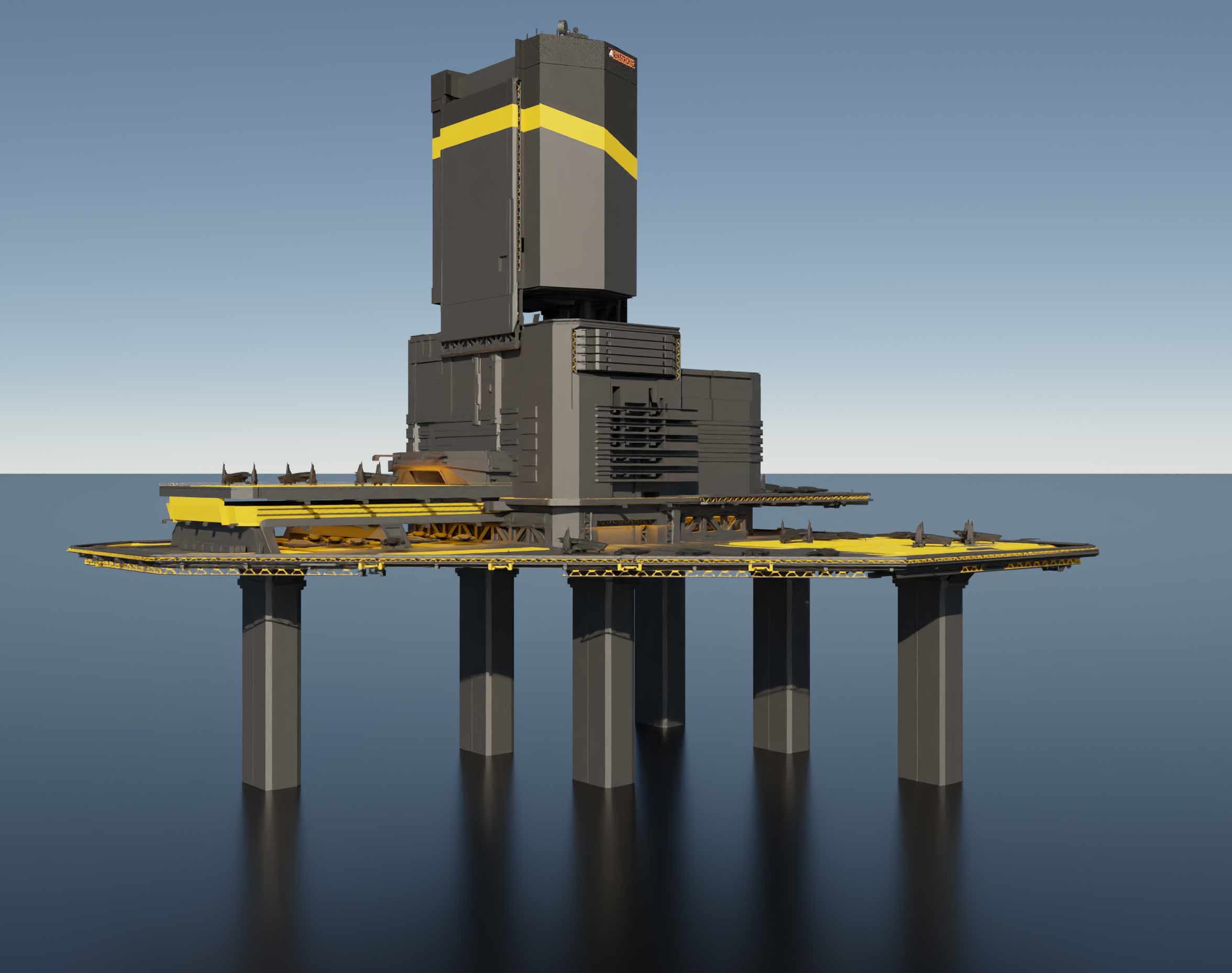
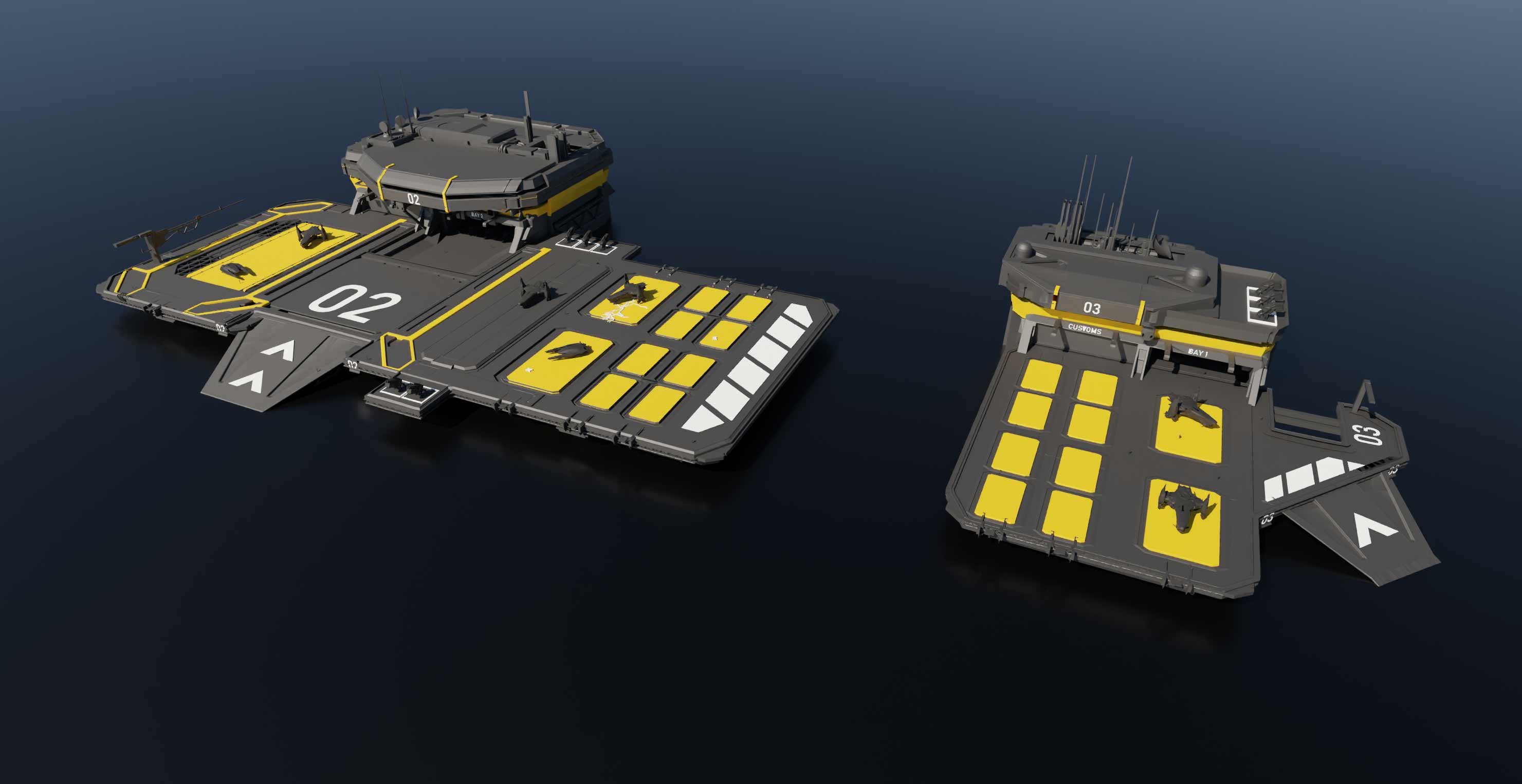
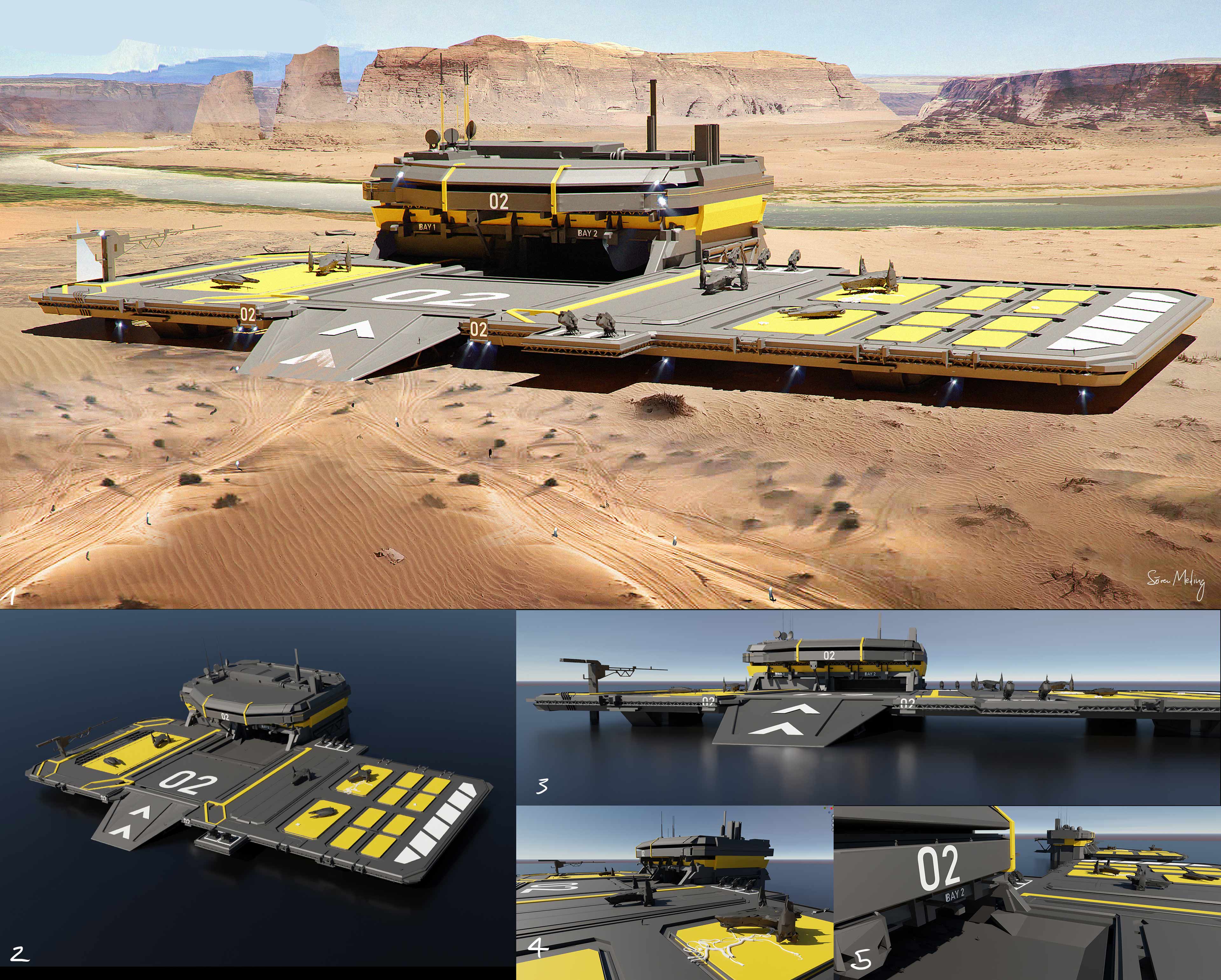
Desert biome
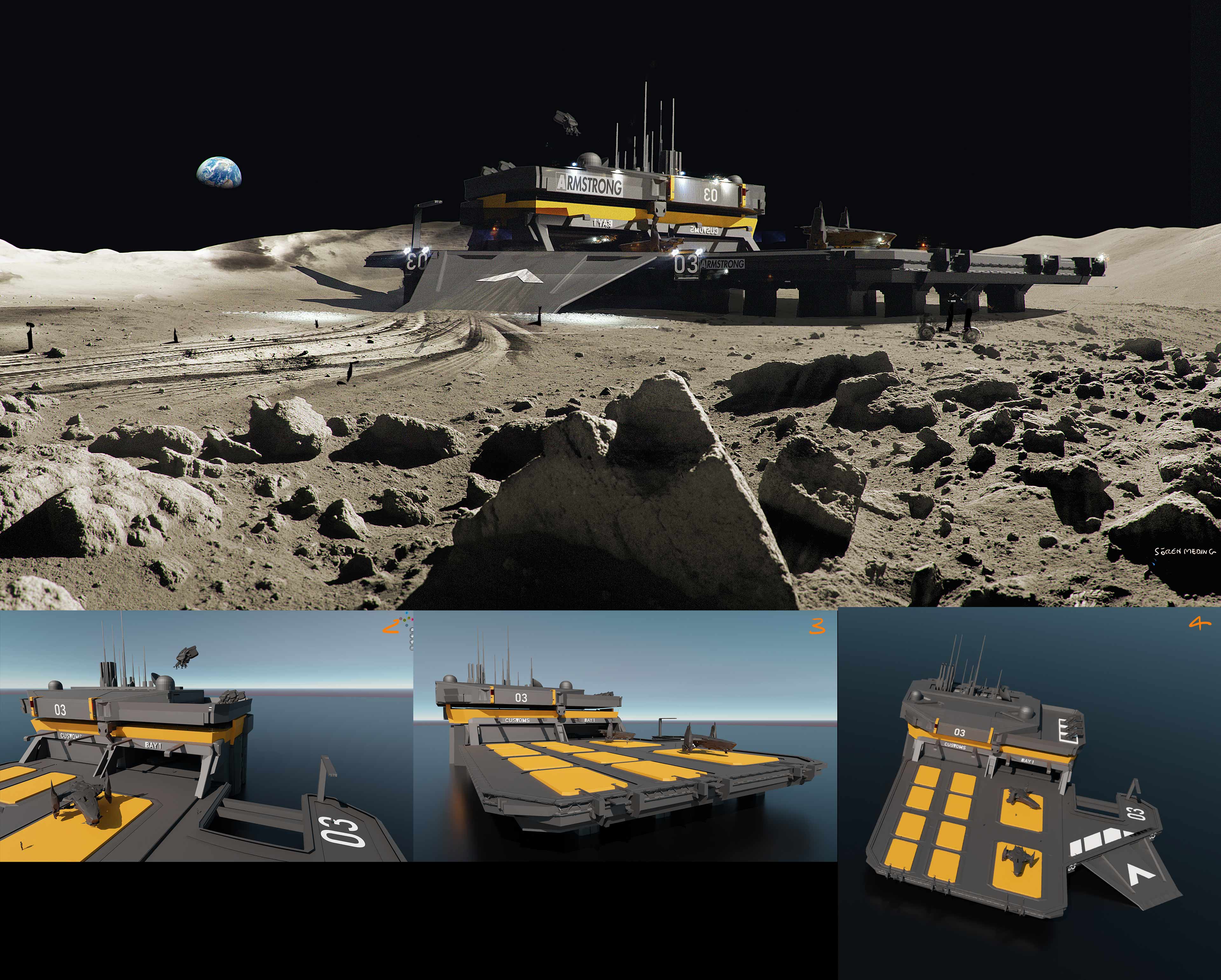
Interstellar biome
After months of work, I gathered all elements to a large kitbash library for the Armstrong universe, allowing new design requests to be handled quickly.
On the right: a few more buildings from the Armstrong world, reminded me of the good old Anno-2205 days.
